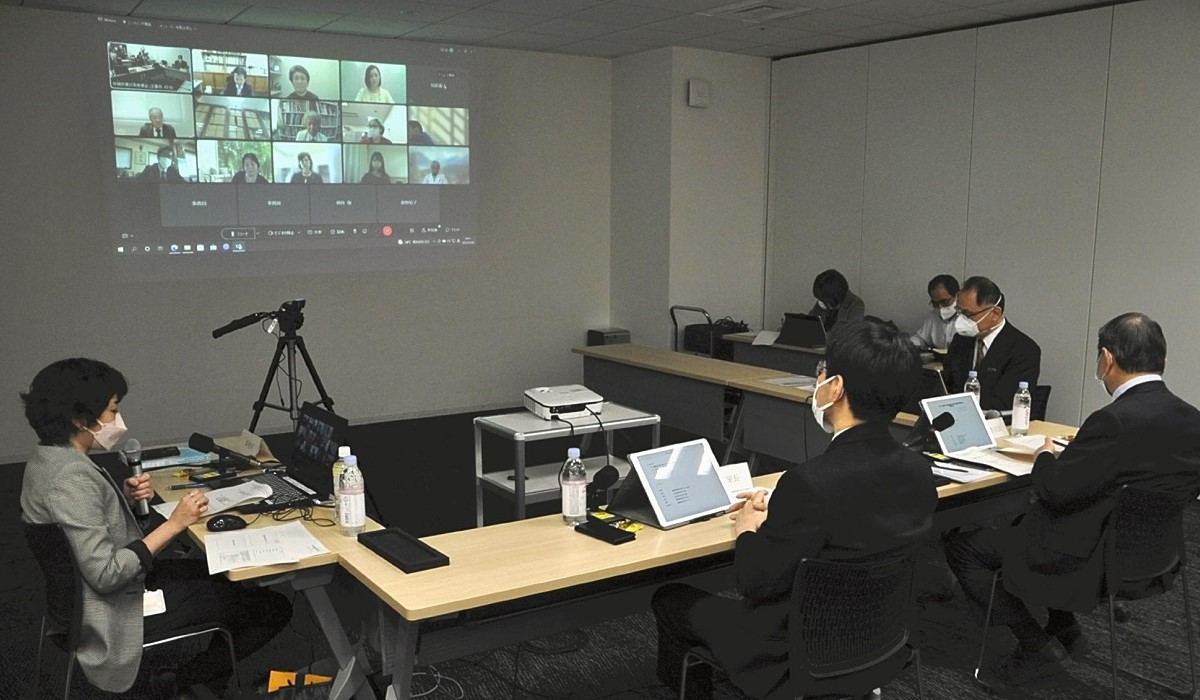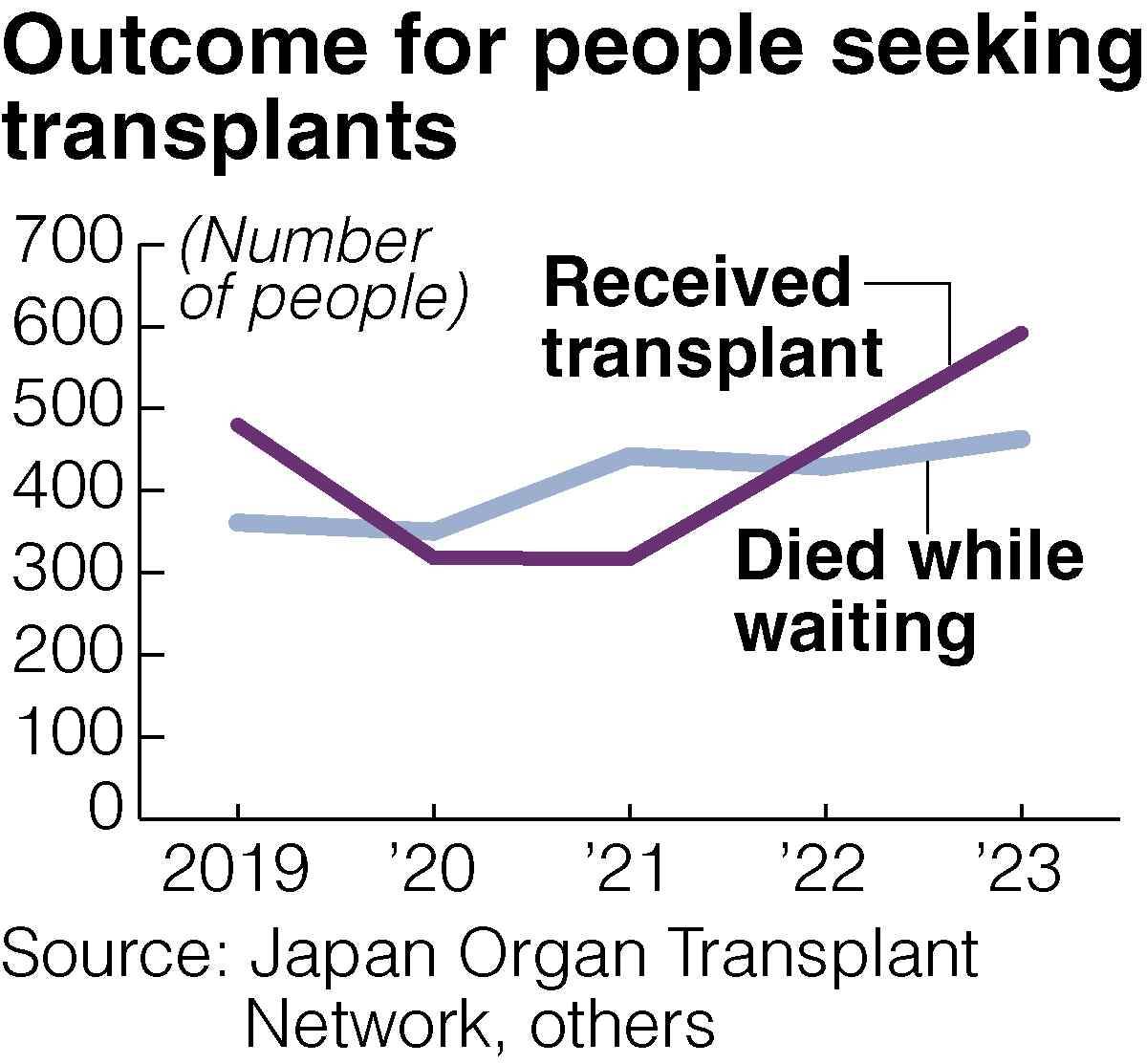Japan Authorities to Review Organ Transplant Rules; Greater Priority May Be Given to Patients in Imminent Danger

A meeting of the organ transplant committee, which is part of the Health, Labor and Welfare Ministry ‘s Health Science Council, in March 2023
15:21 JST, October 20, 2024
As part of efforts to reduce the number of people who die while waiting for a organ transplant from a brain-dead donor, the government is considering expanding the rules that give greater priority to people who do not have long to live.
Priority is already given to people waiting for a liver transplant who have been given no more than a month to live. The rules are expected to be expanded to people who need a heart or lung transplant.
Relevant discussions will begin at the organ transplant committee, which is part of the Health, Labor and Welfare Ministry ‘s Health Science Council, by the end of the month at the earliest.
The Japan Organ Transplant Network (JOT) determines the order of patients waiting to receive organs from brain-dead donors, based on criteria set by the ministry. When a donor appears, the JOT works from the top of the list, asking transplant facilities where the patients are registered to accept the organs.

The criteria are based on proposals by academic societies and research groups, and differ depending on the organ.
The review of the rules will begin with heart transplants. Currently, people who have been waiting for a long time are more likely to receive a transplant first.
The committee will discuss whether patients whose lives are in imminent danger should be prioritized, regardless of how long they’ve waited, as well as specific conditions for people to be considered urgent cases.
The committee plans to consider such rules for lung transplants as well.
Also reviewed will be a proposal to give higher priority to patients who are registered at transplant facilities that are close to facilities where organs such as hearts and livers are harvested for donations. There have been cases in which facilities that perform transplant operations had to turn down organs from brain-dead patients due to a lack of necessary personnel or the means to transport the organs.
Prioritizing cases in which the two types of facilities are located close each other is expected to ensure that organ donations are duly accepted.
According to the JOT, 16,452 people in Japan were on a waiting list for an organ transplant as of the end of September.
In 2023, 592 people received organ transplants, and 463 died while still waiting.
Top Articles in Society
-

Producer Behind Pop Group XG Arrested for Cocaine Possession
-

Man Infected with Measles Reportedly Dined at Restaurant in Tokyo Station
-

Man Infected with Measles May Have Come in Contact with Many People in Tokyo, Went to Store, Restaurant Around When Symptoms Emerged
-

Woman with Measles Visited Hospital in Tokyo Multiple Times Before Being Diagnosed with Disease
-

Australian Woman Dies After Mishap on Ski Lift in Nagano Prefecture
JN ACCESS RANKING
-

Producer Behind Pop Group XG Arrested for Cocaine Possession
-

Japan PM Takaichi’s Cabinet Resigns en Masse
-

Man Infected with Measles Reportedly Dined at Restaurant in Tokyo Station
-

Israeli Ambassador to Japan Speaks about Japan’s Role in the Reconstruction of Gaza
-

Videos Plagiarized, Reposted with False Subtitles Claiming ‘Ryukyu Belongs to China’; Anti-China False Information Also Posted in Japan























